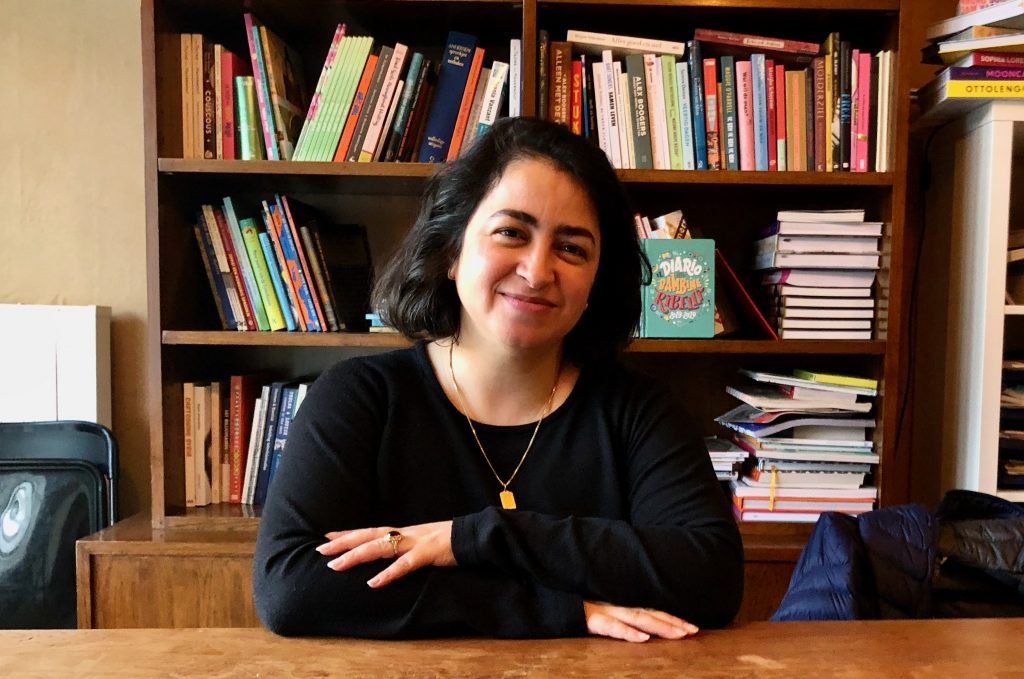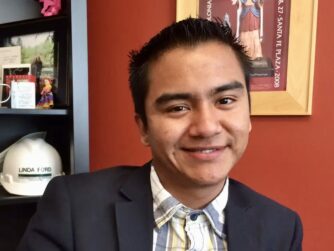
Hassnae Bouazza was born in Morocco. She didn’t speak a word of Dutch when she immigrated to the Netherlands, though today it’s effectively her mother tongue. The Dutch government now insists that would-be immigrants like Bouazza pass a Dutch language “entrance exam.” Are Dutch officials using language to keep “undesirables” out? Or is speaking the local language an essential part of living in the Netherlands?
Photo by Patrick Cox. Music by Blue Dot Sessions, Podington Bear, Atisound, and Gridded. Thanks to Sara Wallace Goodman, Ben Coates, Jeremy Helton, Liesbeth Siers, Tracey Keij-Denton, Jos Beelen, Carol Zall, Clark Boyd, Laura Rumbley, and Rose Stories in Amsterdam. Read a transcript of this episode here.







Great episode!
Thanks Eduardo!
I could really relate to the ‘your Dutch is so good’ comment. I am a Dutch-speaking Belgian, and when we lived in Belgium, we had a neighbor from the Netherlands. When my father introduced himself to this neighbor, he said: ‘Oh, you speak really good Dutch’. I think my father responded: ‘You too!’. The Dutch seem to believe that no one outside of the Netherlands speaks Dutch, even though more than 50% of Belgians speak Dutch.
I visited the Netherlands and learned Dutch to do so, ’cause I’m a language nerd. In Amsterdam, any time I tried to speak Dutch, they would immediately switch to English. One time, I even tried to buy an umbrella from a woman, who said in North American English, “Oh, God, do I have to speak Dutch?!!?”
Outside of Amsterdam, it was somewhat different.
Thank you for this discussion. I am a Dutch Indonesian who was born in Amsterdam and moved to the US as a child. At that time, there were no special classes to learn English for immigrants (they started mostly in the early 1980s). Like in this story, some teachers and other students were less than supportive of my presence in their classes. Since then, I have also been at times complimented on my fluent English, although that seems absurd to me as I came when I was relatively young and as a result have no non-native accent.
Today schools in the US are doing a decent job of teaching English to immigrant children and adults, and as a result most move into the mainstream. There are standards required for people teaching English to immigrants, and many of the teachers have advanced degrees. Supporting English instruction really pays off for everyone, immigrants and native born.
The speakers quoted as part of the introduction make it sound like the US does not require immigrants to speak English. The US has long had a civics test and English test as a citizenship requirement for immigrants. My parents took it and passed in 1965. It is not free; currently it costs $640 to take it. And, many native-born people would not pass it.
Out of necessity, the Dutch have long been good at learning multiple languages. It should be obvious to them that immigrants can do the same, and when offered support, are likely to do so.